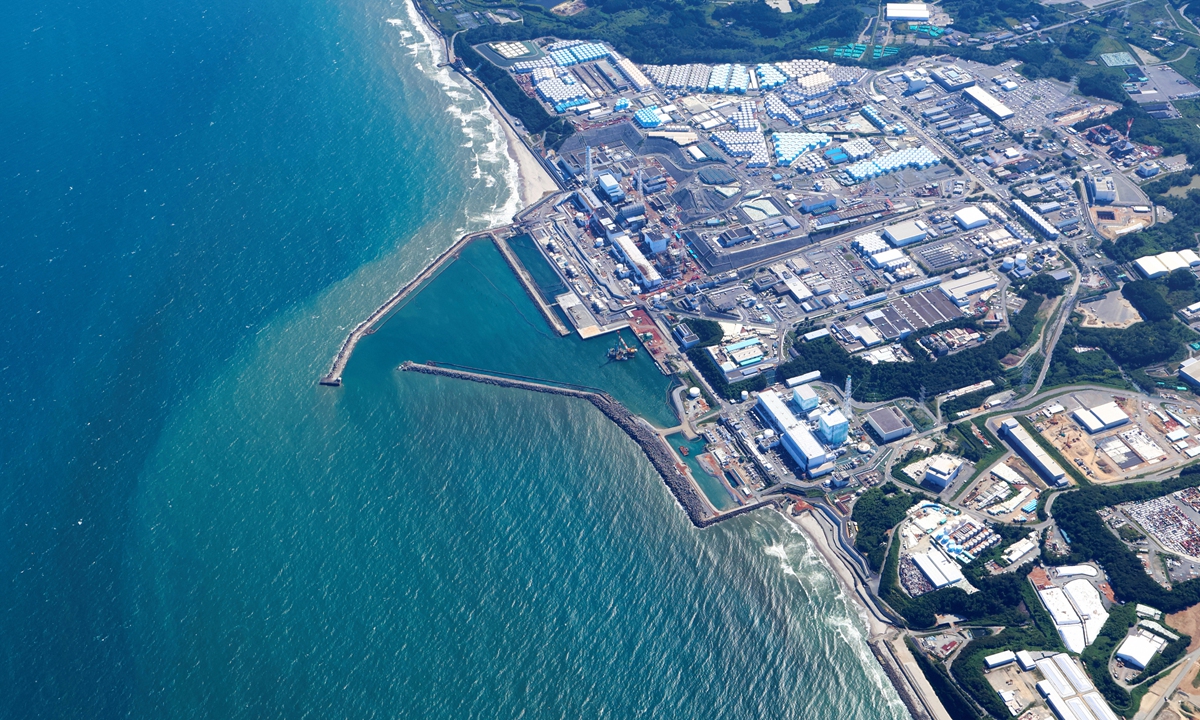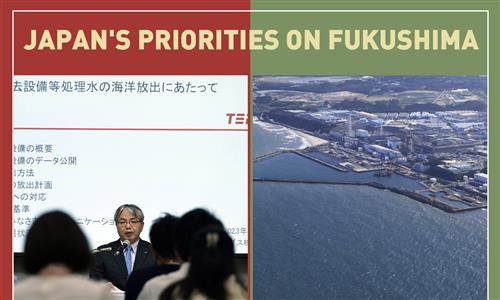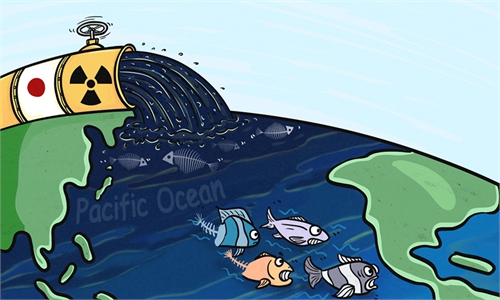Japanese govt should be charged with ecocide for dumping nuclear-contaminated wastewater into ocean: think tank

In this aerial image, nuclear-contaminated water is released from the Tokyo Electric Power Co (TEPCO) Fukushima Daiichi nuclear power plant into the ocean on August 24, 2023 in Okuma, Fukushima, Japan. Photo: VCG
Chinese experts have called for efforts to study whether it is possible to prosecute those responsible for the reckless plan to dump Fukushima nuclear-contaminated wastewater into the ocean, according to a recent report by Chinese think tank Global Governance Institution.
Efforts through litigation channels to hold the Japanese government liable have been seen around the world, including in Japan and South Korea, since March 2011 when the Fukushima nuclear disaster happened. But no actual results have been achieved so far.
As the dumping of the nuclear-contaminated wastewater into the ocean began on August 24, it shows that the Japanese government has entered a new phase of damaging the marine environment and the health of all mankind, which could have incalculable results, read the report the institution sent to the Global Times.
With the rising intensity of environmental difficulties, ecocide has achieved more widespread recognition and broader awareness. The world is currently witnessing growing efforts to legally protect the environment and prosecute those responsible for damaging it. One of these efforts is to legally recognize and criminalize ecocide, making it a fifth international criminal crime in addition to genocide, crimes against humanity, war crimes and crimes of aggression.
On June 22, 2021, the Independent Expert Panel concluded its groundbreaking draft work and announced a proposed consensus definition of ecocide, which means "unlawful or wanton acts committed with knowledge that there is a substantial likelihood of severe and either widespread or long-term damage to the environment being caused by those acts."
The Japanese government has disregarded the opposition from neighboring countries and the international community and insists on dumping the nuclear-contaminated wastewater into the ocean, which will have an impact on the health and environment of all mankind. It should be studied whether it is possible to prosecute them on charges such as ecocide, read the report.
In order to protect the interests of all mankind and prevent irreversible damage to the world's ecosystem, the process of holding the Japanese government and decision-makers accountable should be initiated through international litigation or non-litigation means, serving as another "Tokyo Tribunal" in the field of environmental protection after World War II, experts suggested in the report.
International laws that could also serve as a legal basis for prosecuting the Japanese government include the international maritime law, the international nuclear law, international environmental law and the international human rights law, according to the report.
Efforts to prosecute the Japanese government via litigation channels are necessary to safeguard countries' rights. As the reckless dumping plan harms the global marine environment and people's health, especially those in China, South Korea and the Pacific Island countries, litigation channels are needed to hold the Japanese government accountable, the report noted.
It is also necessary to safeguard the international legal order as the essence of the Japanese government dumping the nuclear-contaminated wastewater into the ocean regardless of the international community's opposition is that they are undermining the rule of law of the international community, the report noted.
But there will also be many hurdles during the procedure to prosecute the Japanese government, including loopholes, lack of specified terms and gray areas in relevant laws in terms of the dumping, which is the first of its kind in the world. There would also be difficulties in deciding whether a law applies in this case and in collecting evidence to prove the damage to the ecosystem and people's health, experts warned in the report.



